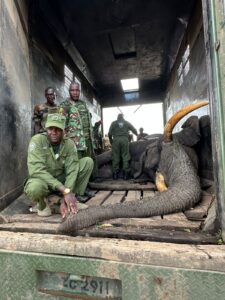We started the year with two prominent successful operations by the MEP intelligence team that led to the recovery of a total of 81 kg of ivory and the arrest of four suspects. Our intelligence team continues to shine and the two busts they led in January are evidence of their continued effectiveness. Their first bust was near the main road heading to Nairobi from Narok in Ntulele where one suspect was arrested with four tusks weighing 39 kg. The second bust of 42 kg of ivory was of a Ugandan who also had a huge sack of wildlife bones. This bust made the national news in Kenya.
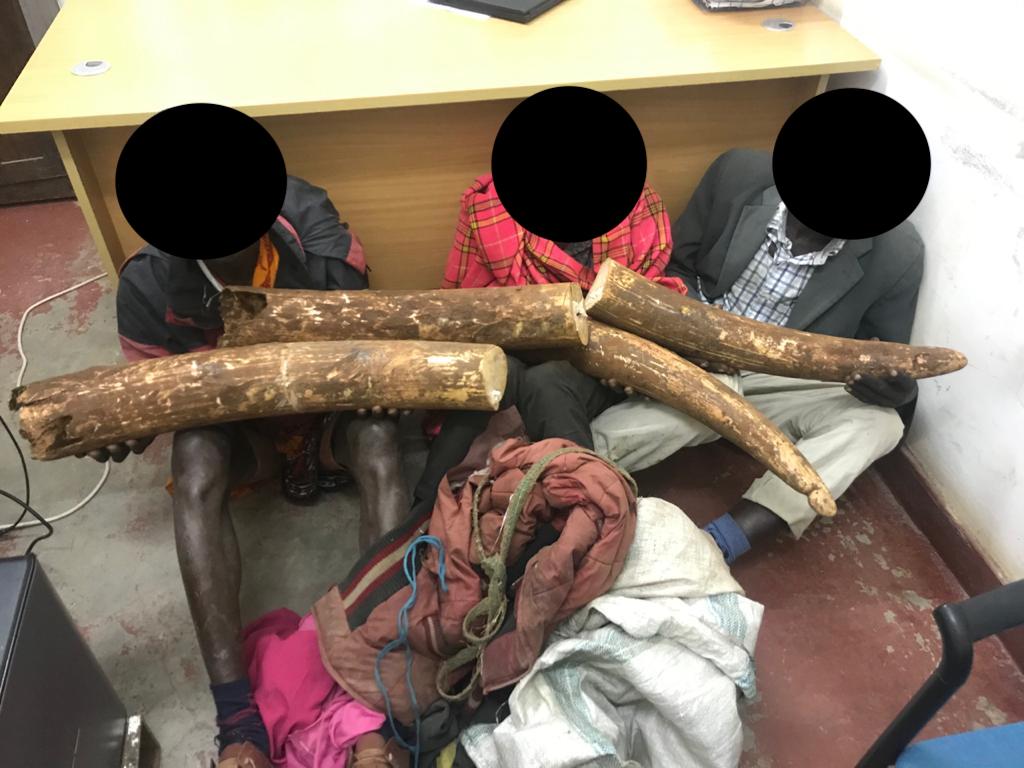
The ivory seized during a MEP intelligence operation on January 2 with three suspects arrested.
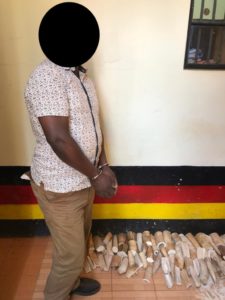 The MEP Intelligence team followed the suspect for a period of two months after a source reported information to us that he was in possession of ivory for sale. The undercover operative set up a sting operation at his friend’s house on the outskirts of Busia and the arrest was made by KWS and Police CID officers. Along with the ivory in his possession he also had wildlife bones weighing 36 kg suspected to be from a giraffe (pictured left). During the interview he claimed it was crushed and sold as a medicine for chest pains and brucellosis. The MEP intelligence officer recounts, “the Ugandan man was a strong ex-policeman and resisted arrest, but through the intervention of the KWS officer he was successfully subdued and arrested.”
The MEP Intelligence team followed the suspect for a period of two months after a source reported information to us that he was in possession of ivory for sale. The undercover operative set up a sting operation at his friend’s house on the outskirts of Busia and the arrest was made by KWS and Police CID officers. Along with the ivory in his possession he also had wildlife bones weighing 36 kg suspected to be from a giraffe (pictured left). During the interview he claimed it was crushed and sold as a medicine for chest pains and brucellosis. The MEP intelligence officer recounts, “the Ugandan man was a strong ex-policeman and resisted arrest, but through the intervention of the KWS officer he was successfully subdued and arrested.”
In total, in the first quarter, we destroyed 56 kilns, confiscated 154 bags of charcoal, 6,010 pieces of cedar, 45 pieces of cypress, 119 illegally logged posts, one power saw and arrested 29 suspects for illegal logging or charcoal production in collaboration with Kenya Forest Service (KFS), KWS and the local police.
In terms of poaching, MEP rangers removed 19 snares, found one poacher’s cave, arrested five suspects for bushmeat poaching, and seized 9 kg of bushmeat. We responded to a total of 31 incidents of human-elephant conflict. Most were mitigated using ranger’s vehicles, firecrackers or drums; however, as COVID restrictions increased, the Karen Blixen Camp Trust helicopter was called in frequently to move elephants out of settlements and was essential during this time of limited contact for quickly and effectively responding to conflict while maintaining recommended isolation. The new Sheldrick Wildlife Trust Mau De-Snaring Unit and Loita team were deployed in January expanding MEP’s protection in the Mau and Loita, two areas in need of increased security. In the first quarter, MEP rangers covered a distance of 3,219 km on foot, 20,945 km in a patrol vehicle and 1,119 km on motorbikes.
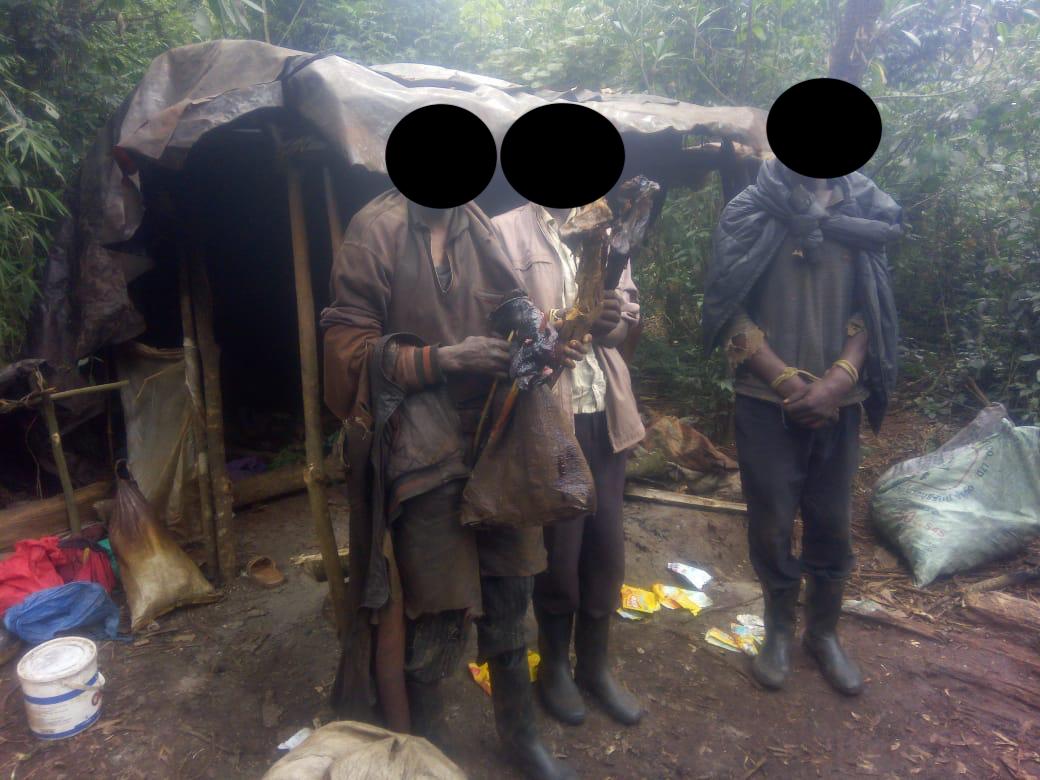
Three suspects arrested for bushmeat poaching on January 27.
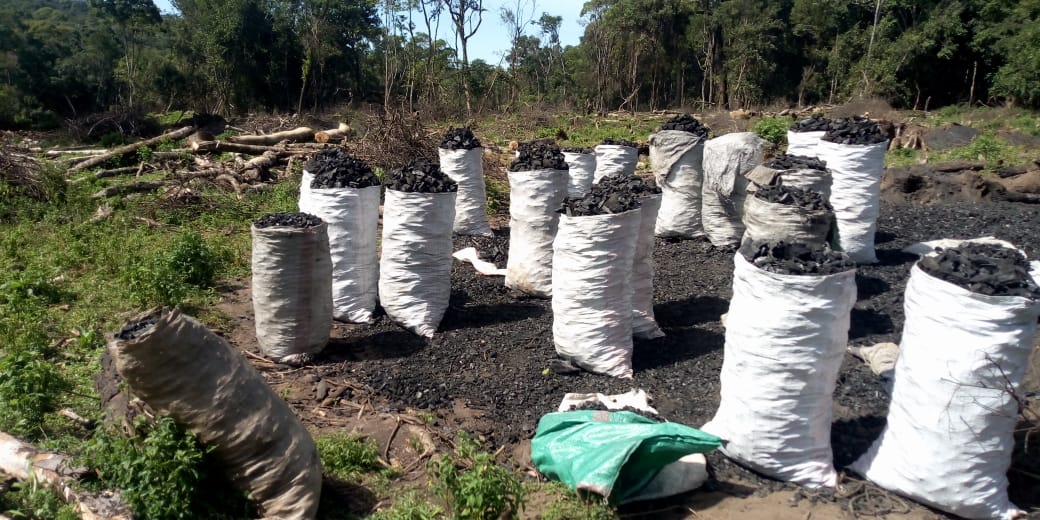
The Transmara team destroyed two kilns and 36 bags of charcoal at Nyakweri Forest on February 21.

One of five kilns destroyed on March 13 by the Loita team.
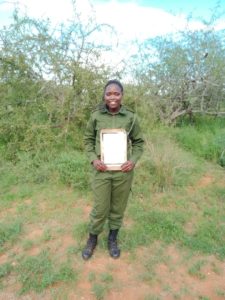 Five MEP rangers participated in ranger life saver course training given by Ranger Campus from March 2 through March 20 at Tsavo conservation area. Ranger Campus offers a competency-based, innovative and measurable approach to ranger training and concentrates on the long-term training of rangers. The training focused mostly in the areas of emergency services and first aid. Two of MEP’s rangers completed the operator level while three of them graduated at the instructor level meaning they are competent to instruct other rangers in this course. One of MEP’s female rangers, Caren Yegon, graduated to instructor level and while at Ranger Campus, she not only excelled, she was noted as the best recruit and earned many distinctions in the course.
Five MEP rangers participated in ranger life saver course training given by Ranger Campus from March 2 through March 20 at Tsavo conservation area. Ranger Campus offers a competency-based, innovative and measurable approach to ranger training and concentrates on the long-term training of rangers. The training focused mostly in the areas of emergency services and first aid. Two of MEP’s rangers completed the operator level while three of them graduated at the instructor level meaning they are competent to instruct other rangers in this course. One of MEP’s female rangers, Caren Yegon, graduated to instructor level and while at Ranger Campus, she not only excelled, she was noted as the best recruit and earned many distinctions in the course.
“During my training period I have learned so much about saving lives and I look forward to sharing that knowledge with my fellow colleagues.” MEP Ranger Caren Yegon
LEAD Ranger’s Senior Trainer Boris Vos was very impressed with MEP’s rangers during the training course.
“It has been an absolute pleasure having MEP rangers attend the training. They are friendly, cheerful, hardworking they have proven to be exemplary ambassador’s, looking forward to a long working relationship.” Boris Vos


